Grenada: Yachting in Times of COVID-19 – by Chris Doyle
Well known cruising guide author Chris Doyle reports on how the Grenada government and the Marine and Yachting Association of Grenada (MAYAG) coped with the COVID-19 outbreak.
Published 5 years ago
I had just finished updating the information on Martinique for our Sailors Guide to the Windward Islands when COVID-19 arrived. A day or so before I sailed to St. Lucia, Martinique had confirmed a couple of cases. I sailed into St. Lucia, happy to have my temperature taken on arrival — it seemed like a smart move. Then “bang” — country by country the Eastern Caribbean shut down as the number of COVID-19 cases escalated. It is true St. Vincent & the Grenadines remained a little open to yachts, but only if you were willing to quarantine for two weeks ashore.
Unknown territory
From a yachting point of view, the speed at which things changed was scary — it seemed it would be easy to get caught at sea with nowhere to go. This virus and the response to it were world changers, unknown territory. The island governments did an exemplary job of keeping it in check and knocked back the infection with very few deaths. Many of us sat on our yachts in a state of uncertainty and some anxiety as our regular plans were shredded by events.
I was very pleasantly stuck in St. Lucia for a couple of months. The restrictions were moderate and carefully thought out. Except for about 10 days of 24-hour curfew (with exceptions), shopping and exercising were no problem. But I wanted to return to Grenada, where I am a resident, so, like many others, I checked the Facebook cruisers’ pages and news to see what was up. It was immensely comforting when Grenadalima.com made an appearance. They invited us to sign up, and when we did that, we knew that people were working to help get us back down to Grenada before the hurricane season got hot. I know hundreds of others felt as relieved as I did.
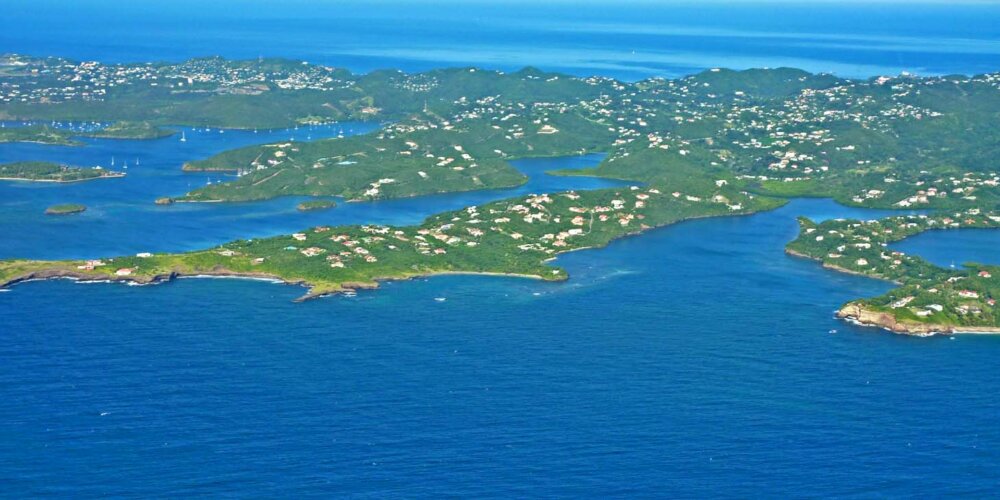

Making yachting tourism work
Yachting is a profitable form of tourism, especially in the Caribbean, where the conditions for sailing are close to perfect. No island has perhaps taken it more seriously, or benefitted from it more, than Grenada. To make yachting tourism really work takes both a vibrant association of those in the yachting industry, and a government that realizes the value of yachting and is willing to cooperate with the private sector.
Grenada has both. MAYAG (Marine and Yachting Association of Grenada) has been doing an excellent job at being the interface between the yachting industry and the government, and the Grenada government has passed much legislation to make things work.
Grenada’s response to COVID-19
When COVID-19 hit the Caribbean, Grenada responded by closing its borders at 2359 hours on March 20th. This left about 20 boats sailing en route to Grenada, who were at sea and had no idea this had happened.
MAYAG set up a COVID-19 subcommittee the very next day. The immediate concern was with those yachts already in Grenada, full of questions about what this meant, and needing reassurance and help, and those at sea intending to clear in with no idea they could not.
The volunteer members of this subcommittee will be familiar to many who know Grenada well:
- Karen Stiell, the secretariat of MAYAG, an independent businesswoman who handles much of the business end of MAYAG, and who directly interfaces with those on yachts;
- Jason Fletcher, president of MAYAG and representing boatyards;
- Dawn DeCoteau, MAYAG Vice President;
- Patrick Braithwaite, MAYAG executive member and representing chandleries;
- Anita Sutton, former MAYAG president and representing small marine businesses;
- James Pascall, former MAYAG VP and representing charter companies and marine businesses;
- Charlotte Fairhead, MAYAG member and representing marinas.
At this point, visiting yachts were probably more of an added complication and responsibility to the government than anything else. I imagine they were glad to have an organization willing to help. The government team that interacted with MAYAG included:
- Minister of Health, Nickolas Steele;
- Acting Chief Medical Officer Dr. Martin;
- Minister of Tourism Modeste Curwen;
- Patricia Maher and Nikoyan Roberts – also in tourism;
- Deputy Police Commissioner Franklyn Redhead;
- Chief Immigration Officer Leroy Joseph;
- Manager Ports Authority Ian Evans;
- Coastguard Commander Watson Edwards; and
- Customs Officer Algernon Belfon.
Since all this was in the days of COVID-19, communications were via official WhatsApp and Zoom groups, which worked smoothly. The yachts that had been underway and arrived after the lockdown were initially put in a kind of limbo quarantine off St. George’s, and given permission to stay there while they worked things out. MAYAG came up with a simple provisioning scheme so they could order some food while they sat at anchor.
Setting up Grenada Lima
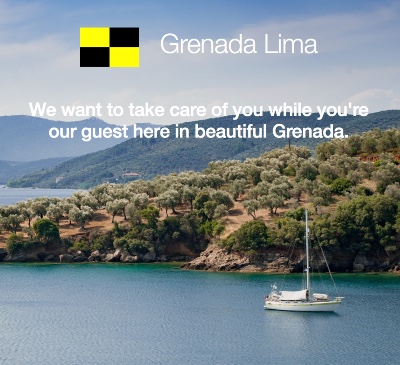

It became clear that the first thing MAYAG needed to know was who were the yachts at anchor and where were they. So Grenada Lima (Grenadalima.com) was born, a data base that could help keep track of how many yachts there were, where they were, and how many were on board. This was done by the Secretariat of MAYAG, rather than MAYAG as whole, which enabled privacy concerns to be met and to make sure the data was not misused.
The black and yellow checked signal flag “Lima” (for the letter L) when flown in harbor means “ship is under quarantine.”
As Grenada went into curfew and heavy restrictions, MAYAG members were wondering how they could ever get back to working on yachts and when yachts might be able to come back into Grenada. They also felt that Grenada was pivotal to the cruising community as one of the safest havens during the hurricane season and that yachts really needed to able to come back around June when the hurricane season officially started. It was the right thing to do.
Solving minor problems
Meanwhile, minor problems had to be solved, the gas stations were all closed; the only place to get fuel was in Port Louis Marina. People were running out on the south coast, and with good communications, the Coast Guard became instrumental in helping them out.
The 250 cruisers in Grenada quickly filled in the Grenada Lima forms, but MAYAG also started getting people who were not in Grenada wanting to register to be able to come down, so they opened that up and the numbers kept growing till Grenada Lima had about 1,250 people on their database, the majority wanting to come to Grenada.
After a couple of weeks, those who had arrived after the ports were closed and had been put in quarantine were allowed to bring their yachts into one of the floating superyacht docks in Port Louis, given a health check, and cleared in. This helped MAYAG to design a protocol for later when others would be allowed to come.
Dealing with newcomers
During the heavy lockdown, cruisers themselves worried when they saw a boat they did not know enter their anchorage. MAYAG arranged to be the one to receive those calls, so they could check on their lists and only contact the Coast Guard if there was a problem. There was also a strict separation of Grenada (which had a few COVID-19 cases) and Carriacou (which did not).
As the current situation came under control the COVID-19 subcommittee discussions centered on how to open Grenada up safely for the hurricane season, in a manner that would satisfy the government, keep the people of Grenada safe, and allow yachts to come back in. They also worked on protocols to reopen the marine industry, so that work on yachts could be done safely with social distancing, masks and contact tracing.


Arrival protocols
The basic protocol for arrivals had the arriving yacht go directly into a quarantine dock in Port Louis (open 24 hours), get a health check and temporary clearance, then return to the well demarcated quarantine anchorage in St. George’s and stay on board for two weeks (swimming is allowed but not to other boats or socializing), after which there would be further health check and a COVID-19 test. If all was well, then the yachts could clear Customs and Immigration properly.
Grenada Lima kept us well informed so when the time came for me to set sail to Grenada, I was ready. We were given a three-day arrival window which made it easy. I had some questions and MAYAG almost instantly responded to e-mails. I sailed down from St. Lucia, waving at SVG as I passed by, and — except for arriving and getting docked single-handed in very squally late-afternoon weather — it was all smooth.
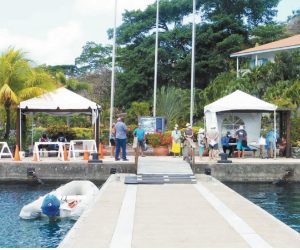

The health team that checked me in the next morning was very welcoming and I went out to anchor in the quarantine zone. Grenada Lima had information about how to buy stores online (a choice of several businesses where you can order online and then when the shopping arrives, go pick it up when told to do so). While at anchor I watched about a hundred more yachts arrive. I could tell by viewing Facebook posts that the yachts were all full of praise and gratitude for the system and their welcome.
Grenada Lima kept us informed by e-mail about the procedures before they happened, and as those of us in the first batch neared the end of our two weeks quarantine we got a VHF call from Port Louis inviting us to come in for our COVID-19 test. The next day we all received an e-mail that told us we were COVID-19 free and could clear Customs. Since we were the first batch, there was a minor hiccup at Customs over the test results, which was quickly dealt with, and we were all cleared in an easy and pleasant manner. For the next batch, when you go for your tests you will fill in a form authorizing your results to go to Grenada Lima, which will smooth that out and speed things up.
Setting a high standard
While COVID-19 caught us all off-guard. Grenada responded instantly. It was the first island to come up with a workable protocol to get boats to be able to move again, which was done well, intelligently, and very professionally. I have nothing but praise for MAYAG’s achievement, and the cooperation they got from the government. It sets a high standard for other countries to follow.
………………………………………………………………………………………………………………………………………
Text and images reproduced with kind permission from Chris Doyle and Caribbean Compass Magazine
………………………………………………………………………………………………………………………………………
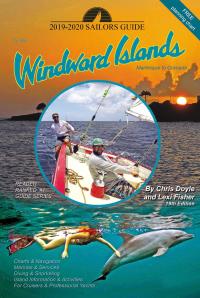

Chris Doyle, with Lexi Fisher, produce the most popular cruising guides to the southern Caribbean. They are currently working on a new Edition of Sailor’s Guide to the Windward islands, which should be in the stores around Christmas.
https://doyleguides.com/
https://www.facebook.com/groups/doyleguides/
………………………………………………………………………………………………………………………………………
Related content:
The Great Caribbean Shutdown – by Chris Doyle
COVID-19 Biosecurity Measures for Yachts Worldwide
………………………………………………………………………………………………………………………………………
Related Links:
https://www.facebook.com/groups/doyleguides/
Marine and Yachting Association of Grenada
………………………………………………………………………………………………………………………………………
The opinions expressed in this article are the author’s own and do not reflect the view of Noonsite.com or World Cruising Club.
Related to following destinations: Grenada
Related to the following Cruising Resources: Caribbean Sea, COVID-19, Routing


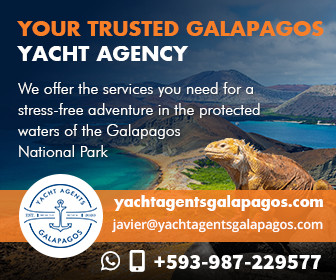
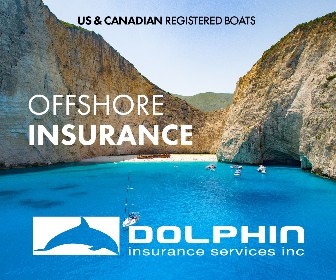
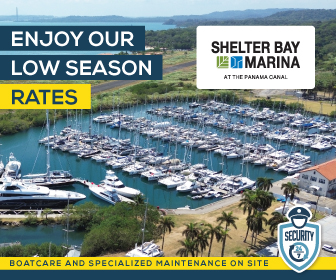

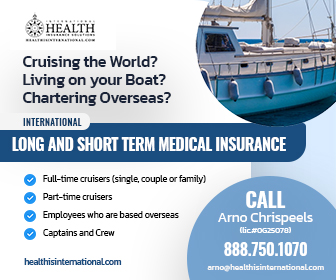
Great article seen from the anchorage. We arrived Port Louis Marina the 19th and they close the next day. We spent 5 weeks at the marina snd were very well informed on the developement through MYAG and GrenadaNow on Facebook. Food was available at the local supermarked (Foodland) at walking distance, initially 3 times a week. Long queues. They allowed opening every day eventually as this was less hazardous than congested queues for spreading the virus. The marina toilet and showers remained open and was kept nice and clean. We felt very safe there.
We were allowed to leave end of April to sail to Horta/Azores. Even though we did not get to see the island at all, we are greatfull for the friendly service we were shown by everyone there.